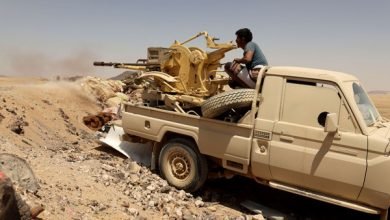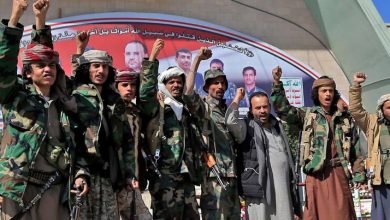The truce in Yemen’s financial war was long overdue

SMA NEWS – ABU DHABI
By\ Insight and opinion from The National’s editorial leadership
Yemen’s near-decade of civil war has been a costly affair in many ways. In addition to the death and destruction – figures released by Unicef last year show that between March 2015 and November 2022, more than 11,000 children in Yemen were killed or seriously injured – poverty also plagues a land that was one of the Middle East’s poorest countries even before the Iran-backed Houthi rebels overran the capital in late 2014.
That poverty has been exacerbated in recent months by another clash taking place amid the country’s multifaceted conflict: a financial war between Yemen’s internationally recognised government and the Houthis. A World Bank update in January described how Yemen’s civil war had “intensified the fragmentation of the country into two distinct economic zones, each governed by its unique set of institutions and policies, with increasing disparity between them”.
This division is most apparent in Yemen’s split currency. In 2016, the government moved its central bank to Aden and began to issue new banknotes. The Houthis established a rival central bank in Sanaa, the capital, going on to issue their own Yemeni rial.
The main result has been the circulation of two Yemeni currencies with different exchange rates – reports in January said the value of the rial in government-controlled areas had fallen to 1,630 to the US dollar. On the other hand, the Houthi-issued rial maintained a stronger exchange rate, leading to major disparities in food prices. In April, a UN Food and Agriculture Organisation report found that food prices followed the same trend as the currency disparity by rising significantly in government-held areas in local currency terms but remaining stable in Houthi areas.
However, the rebels’ March 30 decision to replace 100-rial notes with coins was criticised by the UN-recognised government and many economists, alarmed at the sight of an unregulated currency operating in such an economically unstable country.
This currency war escalated in April when the government’s central bank ordered financial institutions to move their main operations from Houthi-held territory to Aden within 60 days or face sanctions. That deadline ran out in June, leading to a ban on dealing with six banks whose headquarters remained in Sanaa. A retaliatory move against Aden-based banks by the financial authorities in Houthi areas resulted in many ordinary Yemenis being unable to send or receive funds by wire transfer. The disruption also affected currency houses and remittances from abroad – a vital lifeline for many Yemeni families.
This additional hardship on Yemen’s people was as avoidable as it was unnecessary. Therefore, Tuesday’s news that the warring sides have agreed to resolve these financial issues as part of a wider UN-brokered de-escalation effort is welcome. The office of the UN special envoy to Yemen, Hans Grundberg, said the government and the Houthis would cancel “all recent decisions and procedures against banks by both sides and refrain in the future from any similar decisions or procedures”.
In 2016, the government moved its central bank to Aden and began to issue new banknotes. The Houthis established a rival central bank in Sanaa, the capital, going on to issue their own Yemeni riyal
The news has been accompanied by other announcements, including the planned resumption of flights by Yemenia, the national airline, between Sanaa and Jordan, Egypt and India – a move that may help in part to mitigate Yemen’s international isolation.
If this de-escalation means salaries can be paid, remittances received and some economic life can be resuscitated, then it may provide a glimmer of hope for the country’s people. Recovery in Yemen is entirely possible – after the UN helped secure a truce in April 2022, the World Bank’s Yemen Economic Monitor revealed there was a sharp increase in economic activity.
Sadly, Yemen has seen many false dawns and it would be premature to assume that this de-escalation process will deliver in the long term. The Houthis, like many extremists, have a poor track record in the humdrum business of governance. They are also endangering the country with repeated attacks on international shipping and expanded regional confrontation. Ending Yemen’s suffering will depend in large part on the Houthis’ willingness to act in the interests of the Yemeni people, as opposed to those of foreign powers.
Mr Grundberg is right when he said that deeper measures are needed, and Yemen’s many problems – including its divided financial system – demand a comprehensive solution. However, what has been achieved in this deal shows that persistent, dogged diplomacy can pay off, even in the most trying circumstances. It may be a first step to restoring some kind of stability to Yemen, but there is a long way to go until a lasting peace can be envisioned.








